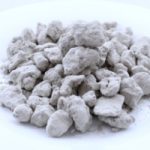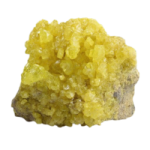

Bentonite
10 000 t

Potash
26 500 t

Salt
96 480 t

Sulfur
320 000 t
The mining industry in Turkmenistan is a major contributor to the country’s economy. The country has significant reserves of natural gas, petroleum, salt, and sulfur, and is also a producer of non-fuel minerals such as bischofite, sodium sulfate, bentonite, epsomite, bromine, and iodine.
The mining industry in Turkmenistan is dominated by state-owned enterprises. However, there is a growing number of private mining companies in the country, and the government is encouraging foreign investment in the sector.
The mining industry in Turkmenistan faces a number of challenges, including the lack of infrastructure, the remote location of some of the country’s mineral deposits, and the environmental impact of mining. However, the government is taking steps to address these challenges, and the mining industry is expected to continue to grow in importance in the years to come.
In 2022, more than 1 million tons of mineral fertilizers were produced in Turkmenistan’s western province of Balkan. The relevant production plan was implemented by 104.9 percent. Around 763 tons of iodine were also produced in the province last year. The 2022 iodine production plan was implemented by 102.3 percent.
Turkmenistan has practically all the natural, technological and human resources in order to become a major global producer of lithium and a supplier of this valuable product to the world market.
The Karabogazgol Bay plays an important role in the development of the chemical industry in Turkmenistan. The inexhaustible, renewable sources of a variety of chemical products require a solution.
Surface and buried brines of the Karabogazgol Bay are valuable mineral raw materials for the industrial production of sodium sulfate, sodium chloride, potassium sulfate, chlorine-free potassium-magnesium fertilizers, magnesium sulfate and chloride, magnesium oxide, bromine, boron, lithium compounds, strontium and many other types of products. The prospects for our own production of lithium, which is so important for the modern economy of the world, in our country may be associated with salted brines in the Garabogaz region.
The possibility of widespread use of industrial waters as hydromineral raw materials has been substantiated to date by the results of studying the patterns of their distribution, regional assessment of operational reserves and predicted resources, geological exploration for underground industrial and associated waters of oil and gas fields, iodine-bromine waters, as well as analysis of the experience of exploitation of deep groundwater deposits, which are characterized by a number of specific features that determine, in turn, the methods of their study and assessment. These waters occur at considerable depths (1000 — 5000 meters) and are characterized, as a rule, by high salinity, industrial concentration of useful components, temperature and gas saturation.
The concentration of lithium in the composition of these waste waters is 15-20 mg/liter, which is much higher than the value of the required industrial concentration of lithium — 1 mg/liter. In addition to technogenic concentrations of lithium in the associated and formation waters of oil and gas production and waste waters of iodine plants, increased lithium content in surface and buried brines of Karabogazgol Bay, as well as wastes generated at the Karabogazsulfat Production Association, may be of particular practical interest. The corresponding raw materials, in contrast to others, are of sedimentary origin. In sedimentary salt deposits, lithium is concentrated either in brines (brine) or in the salt deposits themselves.
